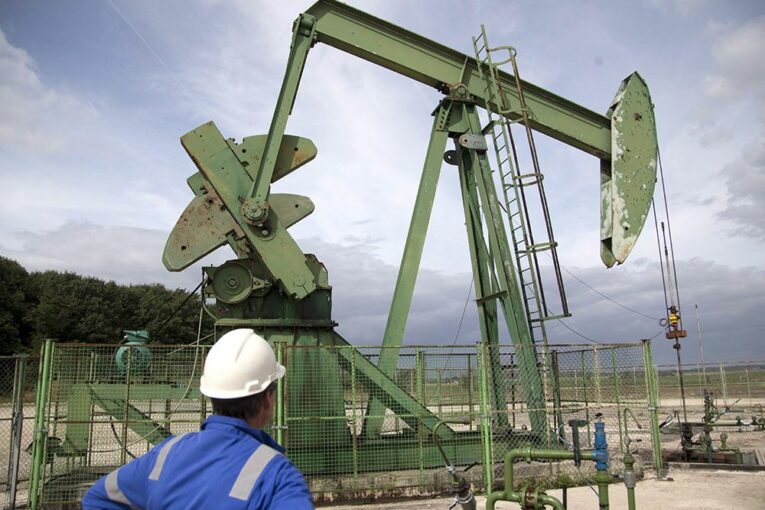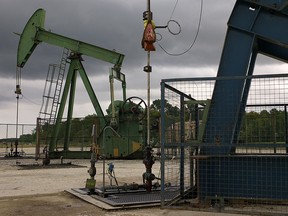
[ad_1]
A $250-million hit from a “windfall tax” on profits last year and a new European natural gas price cap haven’t dissuaded Vermilion Energy from spending money in countries such as Germany and Croatia.
In fact, the Calgary-based company plans to increase its capital expenditures in Europe in 2023 as it sees larger returns in the energy-hungry region than in Canada or the United States.
And it will do so even as windfall taxes from European Union (EU) members are likely to deliver another sizable hit to its bank account this year.
“Obviously, we’re not happy to have nominally $500 million of windfall tax between ‘22 and ‘23, but it shows the resilience in our business in that we’re able to manage that,” Vermilion president Dion Hatcher said in an interview.
“We are allocating capital to European projects . . . It’s still an attractive area.”
On Friday, the intermediate-sized oil and gas producer, which has operations around the world, unveiled a $570-million spending plan for the new year. It includes a spending hike of seven per cent internationally, and a one per cent bump in North America.
Overall, it represents a slight increase from 2022 levels as petroleum producers and industry experts expect strong energy prices to continue in the coming months, even with a recent decline in both oil and gas markets and concerns about a global recession.
Benchmark U.S. crude prices, which ended last year at US$80 a barrel, closed below $74 on Friday, roughly back to where they were at the start of 2022 — before Russia’s invasion of Ukraine.
The war sparked a surge in commodity prices — oil briefly topped $120 a barrel last spring — and an energy crisis in Europe that left countries scrambling to find new supplies.
European natural gas prices, which hit all-time highs last year, returned to pre-war levels earlier this week.
“On oil, we’re cautiously bullish. On European gas, there’s been a weakness . . . but, really, weather has a big impact in the short term,” said Hatcher.
“European gas prices are still $30 Canadian, which is 10-times higher than what we’re seeing in Canada.”
A new report by Deloitte Canada projects West Texas Intermediate crude prices will average US$80 a barrel this year, while Alberta natural gas prices will remain elevated at $5.05 per thousand cubic feet (mcf).
Meanwhile, prices at the U.K. National Balancing Point trading hub will average US$42.50 per mcf, the report forecasts.
“I think 2023 is going to look a lot like 2022, especially the back half of 2022,” said Andrew Botterill, Deloitte Canada’s national leader in oil and gas.
“There’s a lot of demand out there as economies have opened up after the COVID pandemic. And I’d say with China opening up as well now, we could see some pretty robust prices for 2023.”

For Vermilion, its new spending plan represents a modest $20-million bump from last year’s budget.
The company also announced a 25 per cent dividend increase and it will resume a share buyback plan that was put on hold in November as it wrestled with the unexpected implications of Europe’s new temporary windfall tax on profits by petroleum producers.
The Canadian firm expects the charge to be on the lower end of initial projections because of weakening European gas prices, with Vermilion now anticipating a $250-million bill for 2022, and an estimated $300-million charge this year.
Last September, the EU recommended member countries impose a “solidarity contribution” of a minimum 33 per cent on producers’ average taxable profits between 2018 and 2021, although some countries exceeded that mark.
Vermilion noted that in Ireland, where the company has offshore gas operations, it has proposed a 75 per cent windfall tax. (Other countries, including Canada and the United States, have decided not to adopt such as levy.)
Despite the unexpected tax, Vermilion’s spending in Europe will increase to $230 million this year, while spending in Canada and the U.S. will inch up to $340 million.
The company will direct the biggest chunk of its European drilling capital to Germany, which has been grappling with the loss of Russian natural gas supplies and searching for alternative sources to meet domestic needs.
Vermilion said it has a large undeveloped land base in the country and the investment climate in Germany has improved over the past year. It will also drill three new wells in Croatia and another in the Netherlands.
Analyst Phil Skolnick of Eight Capital said he was surprised the company was willing to invest more in Europe given the additional government-imposed costs. He wondered if the EU might decide to extend the windfall profit tax beyond 2023.
Recommended from Editorial
-

Varcoe: ‘Windfall tax’ in Europe hits home for Calgary oil and gas producer
-

‘A dart in the forehead of the energy industry’: Oilpatch reacts to tax on stock buybacks
-

Ottawa could reap $4.4 billion from extending windfall tax to other sectors: PBO
“There will be companies who will pull back on their spending there if they have that ability to do so,” he said from New York.
“The signal is there’s always going to be a tax grab.”
However, Hatcher noted the netbacks for some wells in Europe are double the average of its North American peers.
Due to the retroactive nature of the windfall tax, Hatcher said the company wasn’t able to meet its earlier target of cutting debt levels to $1.2 billion, instead ending last year at just under $1.4 billion.
The European Union also agreed in late December to impose a price cap on natural gas, starting in mid-February. Hatcher said it’s at a high level and he doesn’t expect it will have an effect on Vermilion’s business.
Chris Varcoe is a Calgary Herald columnist.
[ad_2]
You can read more of the news on source
